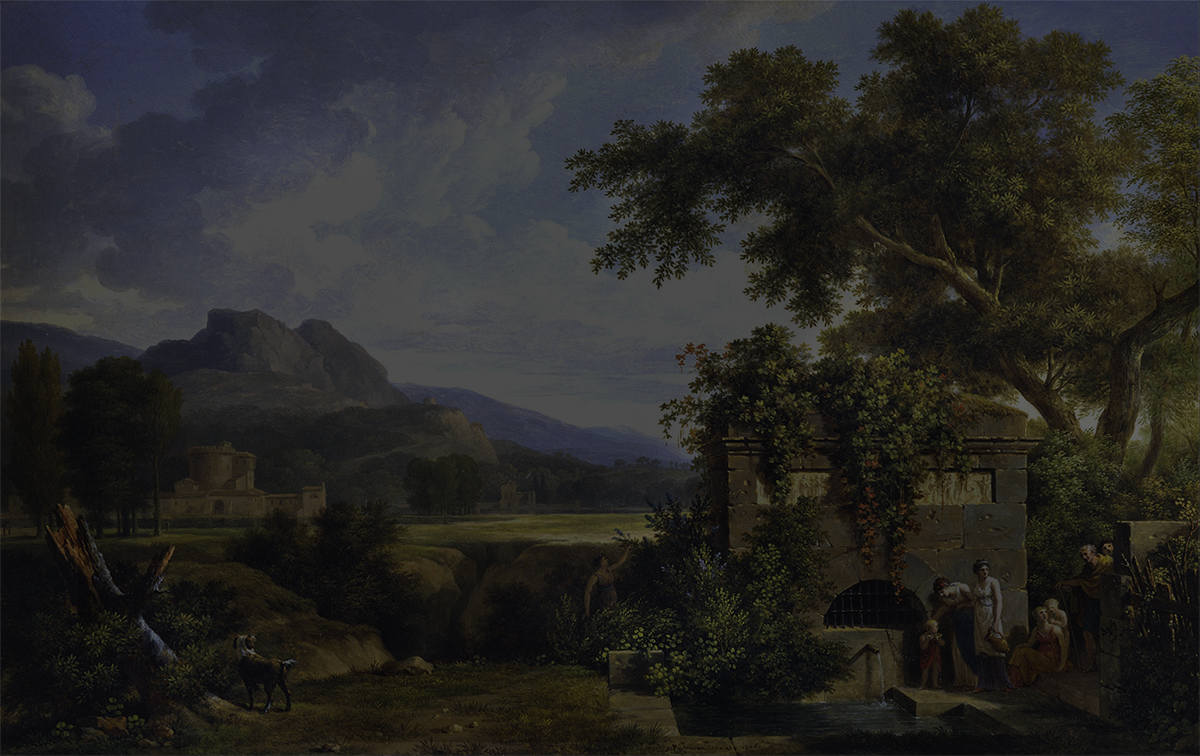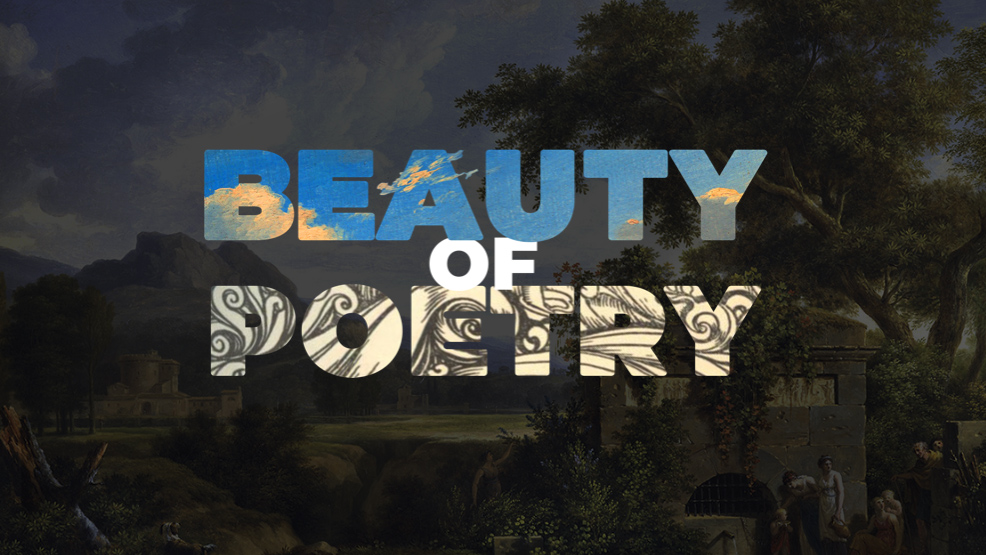

Beauty of Poetry
Augustine tells us in his Confessions that “pleasure pursues beautiful objects”. It was a misguided desire for beauty that led him and his peers to purloin those pears. He knew, however, that beauty was not the trouble, but rather his sinful heart. The pears were beautiful because of how God had made them, and when he found God he recognized that the pears were beautiful still. The longing for beauty was a good thing, and since all beauty comes from God, it led Augustine to Him. Now his desires were also beautiful (sometimes) and his restless heart finally rested.
Euphony is the beauty of words as expressed acoustically, the harmonious succession of words having a pleasing sound. It is the beauty of sounds together in successive lilting lyricism. Language, made for us by God, is beautiful. It will attract, it will lead. Poetic language elevates and emphasizes its own beauty, making the hearer desire it in the same manner (but to a different degree) as all of mankind longs for God. Alas that for so many of us that longing for God is twisted into a desire to be God. The trouble and adventure of euphonious verse is this very power of attraction and compulsion: is that angel of light that we hear true, good, and beautiful, or is he a satan?
This creates in all of us an obligation of love. Just as the best lies wrap themselves in truth, the most insidious uglinesses surround themselves with real beauty, with fragments of divine exaltation or harmony. If we have love we must be beings of euphony. We must love and develop the beauty of poetry. Elsewhere in Confessions Augustine says “run everywhere, holy fires, fires of beauty. Do not be under a bushel.” The holy fires of beauty will run, because beauty comes from God and His Gospel will cover the earth as the waters cover the sea. We must tame this Good Speech, this Gospel, as we might tame the fire of the tongue, which by itself setteth on fire the course of nature.
The beauty of poetry is that it is speech, and words, and Word. Euphony is the beauty of words, and we should all desire to speak euphonies with at least the same intensity with which we might have once desired illicit pears. After all, how are we to proclaim the Gospel, or praise God for having made grass, or praise the grass for glorifying God, or praise the love of our spouse and the courage of the saints, if we do not love the beauty of words? There is no way to speak of such things truthfully or goodly if we do not also do so beautifully.
It would be wonderful for all the saints to read and write more poetry, but at least the saints ought to speak with the beauty of poetry as consistently as they may. The study and skill this takes is worth the while.
Let us speak as if these final words taken from Confessions were true, because they are: “What a beautiful light that will be when we shall see him as he is.” Meanwhile, reveal him as much as you may through euphony. The beauty of poetry is Gospel beauty.
Joffre Swait,
Chief Academic Advisor, Kepler Education


This is the ideal introductory poetry course for students and teachers discovering the art of poetry. As a “grammar,” it teaches the fundamentals of poetry from scansion and rhyme to more advanced concepts like spatial poetry and synecdoche. Using the classical methodology of imitation (advocated by educators like Quintilian and Benjamin Franklin), this text makes students become active participants as they learn the craft of writing poems. It also offers practical tips and helps, including how to use a rhyming dictionary, how great writers use figures of speech effectively, and even when to break the rules of poetry. Its goal is to show students how to capably interact not just with poems, but with language in any situation.

“For Cicero, it may be said, was the one man, above all others, who made the Romans feel how great a charm eloquence lends to what is good, and how invisible justice is, if it be well spoken.”
– Plutarch, Life of Cicero







